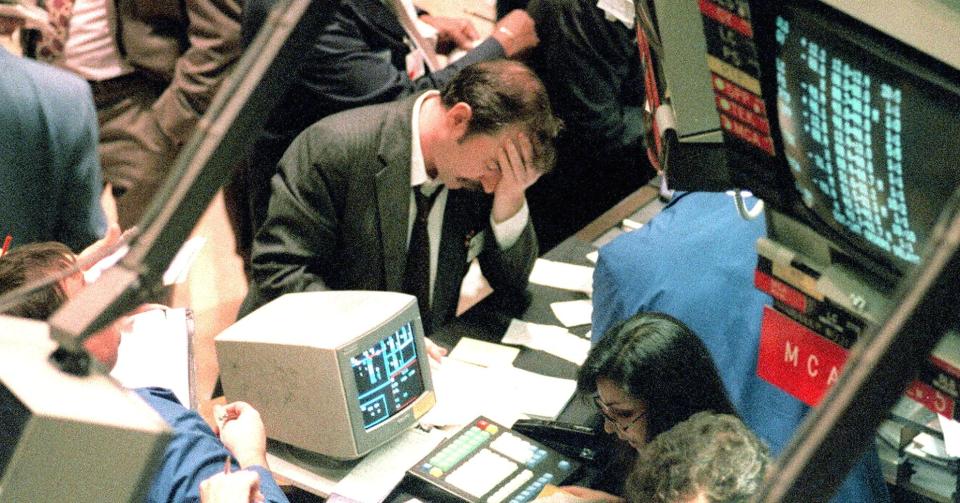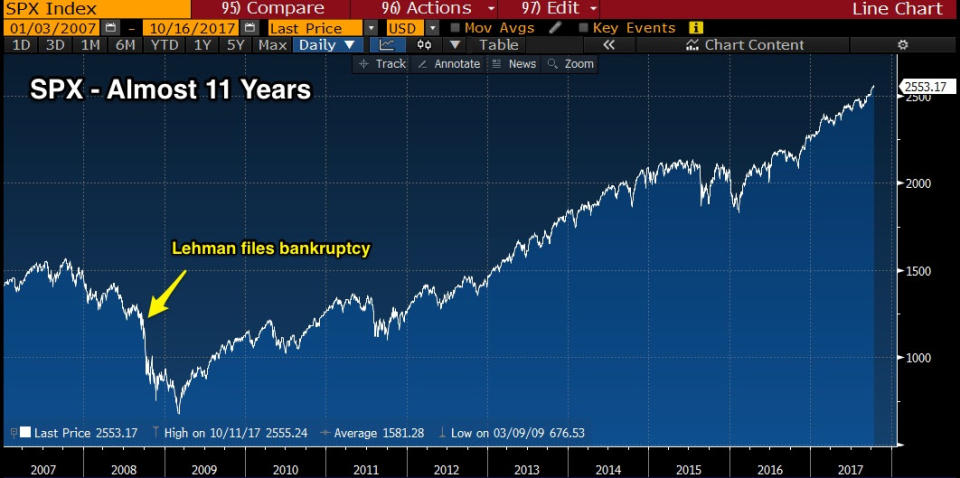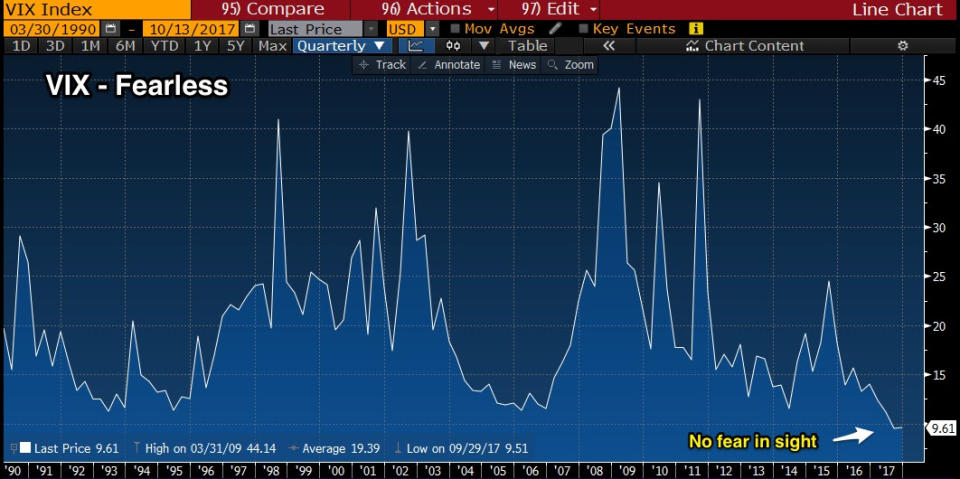1987 crash anniversary reminds us to prepare for next crisis
October 19, 1987 — A day to remember
On the 30th anniversary of the 1987 stock market crash it is hard not to reflect on a day that saw the Dow fall a staggering 22.6% in a single session. Many of us weren’t even trading the market in ’87. As for myself, I was still on stage rocking with the Turtles or on an airliner traveling to the next show. Most of us in the music profession yawned. A few fat cats on Wall Street lost some money. What’s the big deal?

Well, of course, price shocks are a big deal — and not just because of the capital loss. History has shown that losses turn into gains if we just stay the course. Unfortunately, countless studies show most will capitulate. Even if urged to hang on by their advisors, many will sell, hoping to save whatever they can. How many of you reading this post called your broker the day after Lehman collapsed asking them to put more money into the market. Not a lot of hands out there.

Shortly after the 20th anniversary in 2007, we had a different kind of crash. No, it didn’t happen in a single session. But over the next year and five months, the financial crisis inflicted a level of pain I hope I don’t see again in my career.
In behavioral finance, saliency helps explain investor bias. If an event has occurred recently, the prospects of it happening again seem much more profound. If it’s been perhaps a decade or more, it’s a remote possibility. When I first started my career as a broker at Merrill Lynch in 1992, I couldn’t understand why investors would call me every fall looking to pull money out of the market as the anniversary of the 1987 crash approached. By 1999, when I was running money for Lehman, no one was calling to sell — only to buy.

It hasn’t been quite 10 years, but despite a toxic political climate and every corner of the planet seemingly a geopolitical hotspot, fear indicators like the VIX (^VIX, VXX) say investors have the constitution of Navy Seals. The press, whose motto is “if it bleeds it leads,” tries to stoke the fear. But investors go into battle every day (at least with their wallets) chanting, “By the dip.”
Maybe the scariest thing about today’s complacency is not that we’ve forgotten events like the financial crisis or even the 1987 crash. We’ve forgotten how we felt and just how paralyzed we were. In our mind’s eye, we look at it dispassionately, knowing just what we would do if the situation arose again. I’ve got my stops and my rules and my trusty TradeStation software to protect me like a .45 automatic in a gun fight. Unfortunately, when the first shots are fired, you’re probably going to shoot yourself in the foot.
“No battle plan survives contact with the enemy” — Helmuth von Moltke the Elder
The above applies to Wall Street too. We have plans, rules and decades of knowledge, but the real skill is defined as the ability to change and adapt.
The next financial crisis will likely be caused by something we haven’t seen yet and is very hard to predict — the very definition of a Black Swan.
Talking heads, including yours truly, will refer to potential challenges for the market. Among them are the Fed’s unwind of a $4.5 trillion balance sheet or North Korea, fearing an attack is imminent, launching a strike on South Korea or Guam. Others point to political and fiscal failure in Washington or too much liquidity draining out of the system as central banks around the world follow the Federal Reserve. How about a good old-fashioned flash crash, as everyone heads to the exit while market makers walk away?
Chances are it’s none of these, and we’ll be forced to adapt to a situation we haven’t seen yet. Knowing that is half the battle. Even more important is never forgetting it could happen tomorrow.
————————————————-
Please contact your Belpointe investment advisor representative if there are any changes in your financial situation or investment objectives.
Investment advice is offered through Belpointe Asset Management, LLC. Past performance is no guarantee of future returns. Insurance products are offered through Belpointe Insurance, LLC and Belpointe Specialty Insurance, LLC. It is important to read our email disclosures available at this link: http://belpointe.com/disclosures.

 Yahoo Finance
Yahoo Finance 